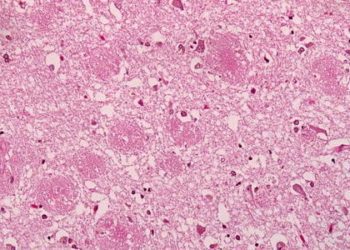Adverse childhood experiences and current life stressors may moderate the relationship between depression and C-reactive protein in midlife women
1. In this longitudinal cohort study, in midlife women with high adverse childhood experiences and high current life stressors, there was an association between C-reactive protein (CRP) and higher odds of having clinically significant depression symptoms.
2. However, this interaction was not significant for other inflammatory markers, including interleukin-6 (IL-6), interleukin-1-beta (IL-1β), or tumor necrosis factor-alpha (TNF-α).
Evidence Rating Level: 2 (Good)
Inflammatory markers, such as C-reactive protein (CRP), interleukin-6 (IL-6), interleukin-1-beta (IL-1β), and tumor necrosis factor-alpha (TNF-α) demonstrate variable relationships with depression. Evidence shows that these inflammatory markers are upregulated in only a subset of patients with depression. Further research has suggested that other factors, such as adverse child experiences and current life stressors, may mediate the relationship between inflammatory markers in depression, though this relationship remains unclear. This relationship is even more unclear during the menopausal transition. Thus, this study set out to determine whether adverse childhood experiences and current life stressors affect the relationship between inflammatory markers and depression in women at midlife.
This study included 142 participants from the Penn Ovarian Ageing Study cohort who were premenopausal and between the ages of 35 and 47 at the beginning of the study. Patients were included if they had a uterus and at least one ovary. Participants were excluded if they experienced recent substance abuse, used psychotropics or hormonal contraception, or had health problems that affected hormone function. Participants were assessed annually over a 16-year period and provided information on demographics, health status, and their menstrual cycle. Blood was also collected annually for analysis of inflammatory markers. Information on stressful life events was obtained from year 5 onwards. Information on adverse childhood experiences was obtained at the end of the study. Depression symptom severity was determined using the Centre for Epidemiologic Studies Depression (CESD) scale. The primary outcome was the association between inflammatory markers and clinically significant depression symptoms, with a focus on the impact of adverse childhood experiences and current life stressors.
The results demonstrated that in women who had high adverse childhood experiences and high current life stressors, higher CRP was associated with significantly higher odds of clinically significant depression. However, this association was not seen for other inflammatory markers, including IL-6, IL-1β, and TNF-α. Furthermore, there was no association between CRP and clinically significant depression in women with low adverse childhood events or low current life stressors. However, the study was limited by the correlative study design, which prohibited the assessment of the causal nature of high CRP levels. Nonetheless, the study demonstrated that life stressors and adverse childhood events may mediate the relationship between some inflammatory markers and depressive symptoms in midlife women.
Click to read the study in Stress & Health
Image: PD
©2023 2 Minute Medicine, Inc. All rights reserved. No works may be reproduced without expressed written consent from 2 Minute Medicine, Inc. Inquire about licensing here. No article should be construed as medical advice and is not intended as such by the authors or by 2 Minute Medicine, Inc








